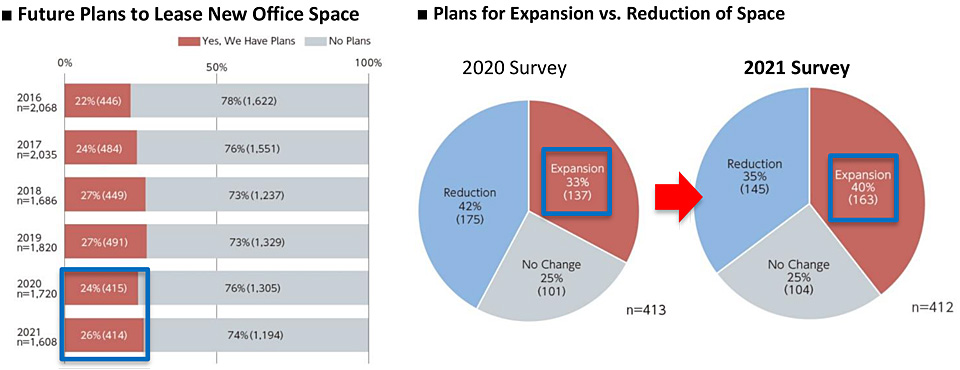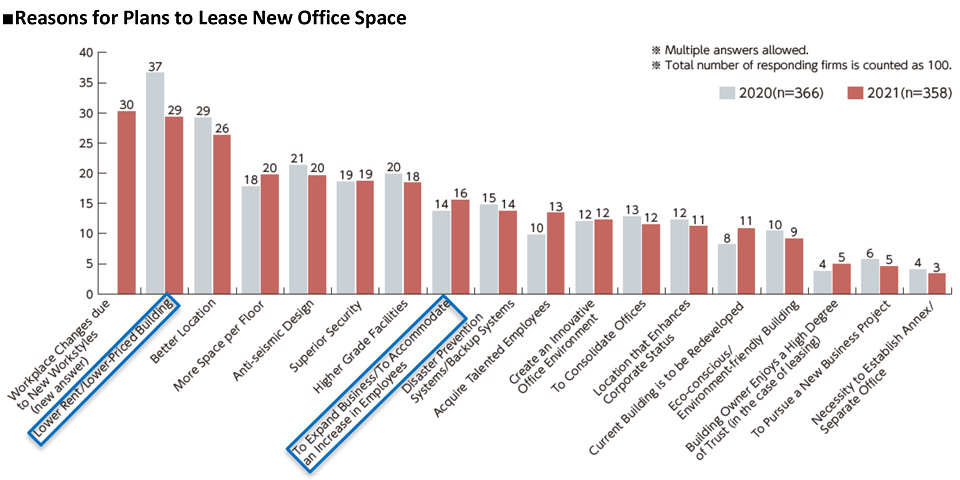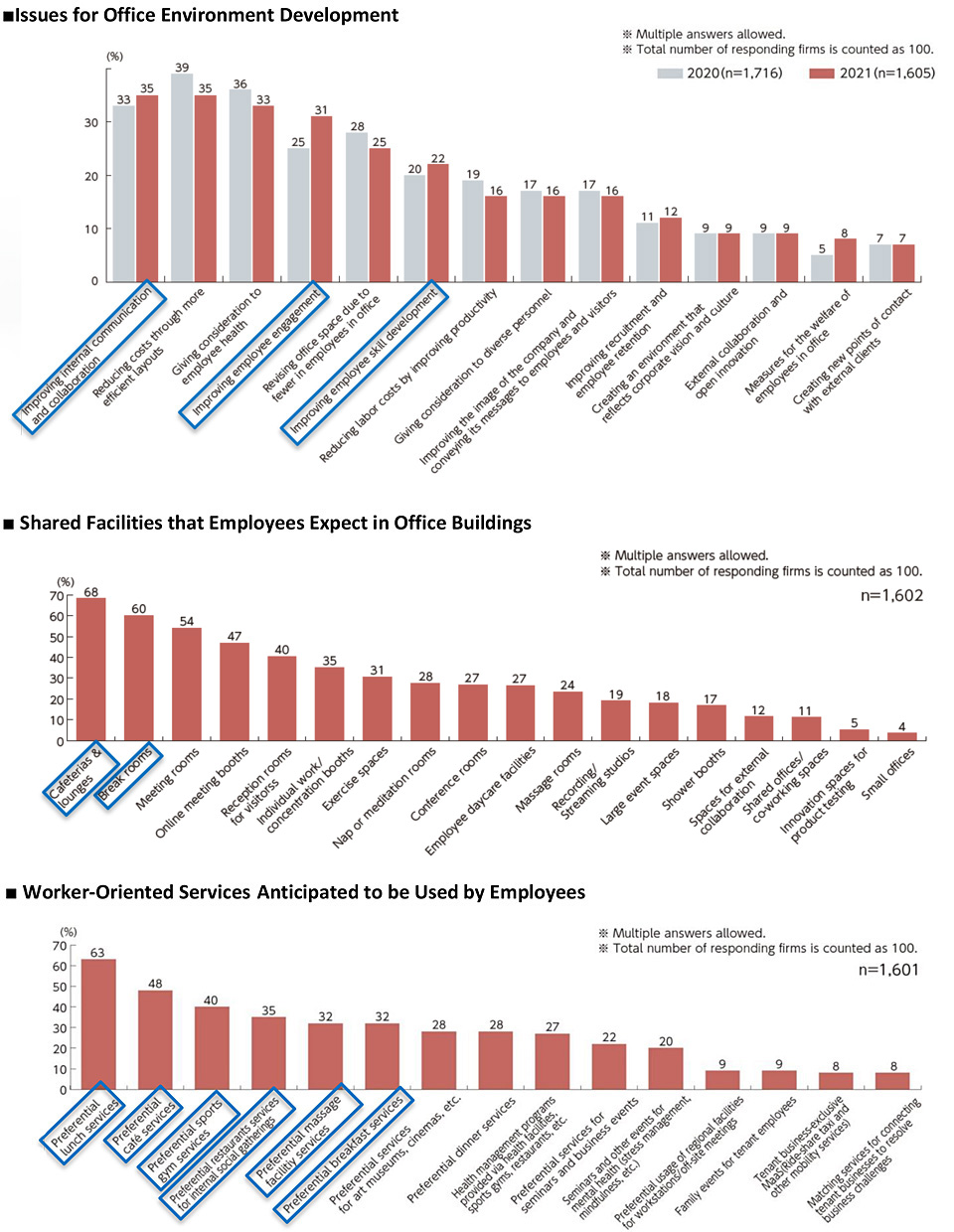Tokyo, December 23, 2021-- Mori Building Co., Ltd., Japan's leading urban landscape developer, announced today the 2021 version of its Survey of Office Needs in Tokyo's 23 Wards, which the company has conducted annually since 2003 to better understand trends in the office building market. The survey, which monitors new demand for office space, is sent to companies headquartered in Tokyo's 23 wards and also ranked globally among the top 10,000 companies in terms of paid-in capital. This latest survey, which was conducted in October 2021 after Tokyo lifted its state of emergency declaration, showed an increase in companies planning to lease new office spaces. Also, the gap between companies planning to expand rather than reduce leased office areas widened from the previous year.

The main reason given for planning to lease new office space was the survey's newly added multiple-choice reply "workplace changes due to new workstyles," followed by "lower-rent/lower-priced building" and "better location," in that order. Respondents that are "to expand business/to accommodate an increase in employees" increased two points to 16% and those "lower-rent/lower-priced building" fell 8 points to 29%, both indicating an improving corporate outlook that envisions more normalized economic activities.

Also, the survey revealed increases in firms that want to develop their office environments for "improving employee engagement," "internal communication" and "improving employee skill development." Strong employee demands were seen in regard to facilities and services related to food/beverages and health as well as enhanced work environments.

The COVID pandemic prompted firms to reconsider the meaning and necessity of employees working at offices as well as the reasons to operate businesses based in office buildings. As workstyles evolve, companies will be required increasingly to address issues related to office environments, such as external and internal communications, employee health management and employee engagement, all of which are difficult to address within the context of remote work. In addition, the market is expected to focus increasingly on disparities between office buildings that do/don't offer facilities and services required to address evolving office-environment issues.
